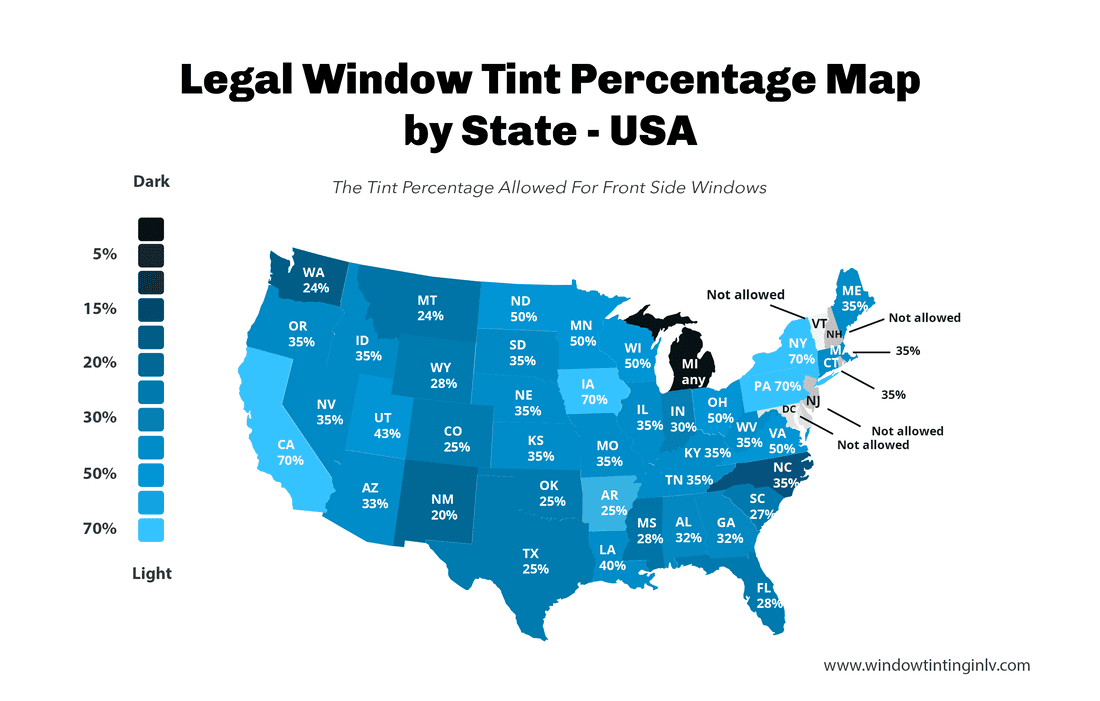

Tinted window laws in nc driver#
BOOM.īlack front window tint also makes it fun for pedestrians to try to make eye contact with the driver when they are trying to cross the street for a more exciting version of car vs. Right when you start to go and give up on letting in the pitch black tint car merge in from the McDonald's driveway, they decide to go for it. Then you start to go because you figure they must not be looking at you or waving back to decline merging, but you can't see if there is anybody even in the car due to the tint. You think "Did they see me wave to let them in? Are they looking at their phone?" Traffic starts to move and you continue to pause and wave, but they don't move. A game of chicken then ensues because you can't tell if you are making eye contact with the driver trying to merge, or if they are even paying attention while you do a little hand motion to let them in. I love when you can't see a person's face because they have pitch black tint and then they pull up to stopped traffic as they try to get out of a McDonald's driveway. If there was a real car safety reason to have them, then all 50 states would ban the same dark tint This needs to be considered when you’re adding custom tint, so that you stay within the legal limits.The tint laws in NC are stupid anyways. One important thing to keep in mind is that most vehicles have a certain amount of light transmission blockage straight from the factory, which measures between 70-80%. Use your best discretion but it may be best to stay on the safe side to avoid headaches in the future.

Terms like “non-reflective” or “non-excessive” are impossible to measure and won’t have the same meaning for every person. If that’s you, you can apply a darker tint than the state normally allows, but you’ll need to carry a doctor’s note with you in your car.Įven if most of the laws for state window tint are straightforward, some use slightly ambiguous terms that leave some room for law enforcement and licensing agencies to interpret. There are some illnesses and conditions that make people light sensitive and most laws have made provisions for these cases. Most states make exceptions for medical reasons. AS-1 Line: This is the line extending from the letters AS-1, found on most motor vehicle windshields, running parallel to the top of the windshield. Color: The state laws on tint color vary from no restrictions at all to restrictions on the use of certain colors or reflective/mirrored finishes. Windshield: Your windshield cannot be tinted in any state, but some states allow you to add a sticker to the top of the windshield, usually in the area of the manufacturer’s sun shield. This value is typically the same as for the rear side windows, but some states are more restrictive. Rear window tint level: This is the amount of tint (VLT%) you’re allowed on your rear window. This value is sometimes different for passenger cars and multi-purpose vehicles (MPVs). Rear-side window tint level: This is the amount of tint (VLT%) you’re allowed on your rear side windows. This is frequently a higher value than for the rear, which allows the driver of the vehicle to be seen from outside. Front-side window tint level: This is the amount of tint (VLT%) you’re allowed on your driver and front passenger windows.
Tinted window laws in nc plus#
This is the percent of visible light that gets through either the film (film VLT%) or window plus film net VLT%. VLT%: Visible light transmission is the measurement used to assess automotive window tints. These are the terms you need to know in order to interpret the various state laws and limits.
Tinted window laws in nc windows#
We’ve consolidated all the information you need to know to make sure your cool tinted windows are legal. If that’s you, you’ve come to the right place.

This may not be a problem if your car has never and will never leave the state, but it can get complicated for those who travel a lot, purchase out-of-state vehicles or move around the country. As with many regulations, window tinting laws vary state by state and can be nuanced and hard to understand. If you’re looking to get your car windows tinted (or even tinting them yourself), you might want to double check the window tinting laws in your state.


 0 kommentar(er)
0 kommentar(er)
